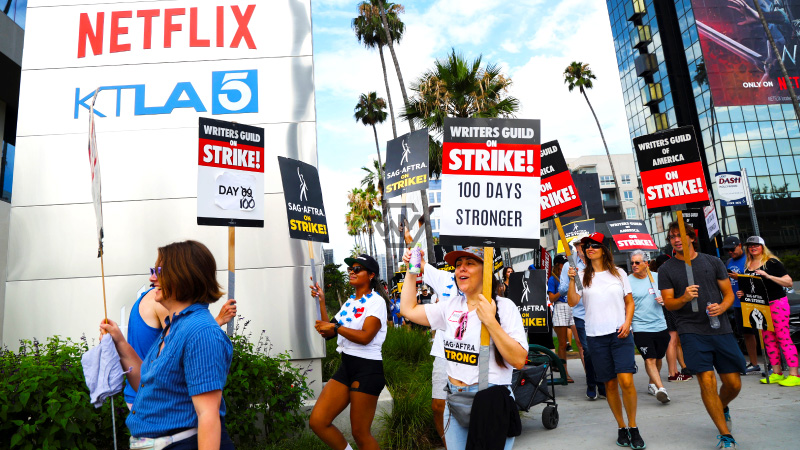- The SAG-AFTRA has now started negotiating with studios once again.
- the per-subscriber fee would cost them $800 million a year, while SAG-AFTRA executives argued the studios.
- The union has never experienced a strike for this duration or since a time before the birth of many of its members.
After the strike started two and a half months ago, the Screen Actors Guild-American Federation of Television and Radio Artists (SAG-AFTRA) has now started negotiating with studios once again.
There were no progress updates and the discussions were dull, with days off in between sessions. On October 11, the studios unexpectedly called off negotiations, claiming that the players’ requests were too costly and that the two sides could not possibly work together.
100-day strike
The executives sought to change from a model based on a show’s success to one based on the number of subscribers, according to the Alliance of Motion Picture and Television Producers (AMPTP), which accused the studios of presenting the demand as a tax on consumers.
The studios said the per-subscriber fee would cost them $800 million a year, while SAG-AFTRA executives argued the studios had made significant progress in their direction.
There is no end in sight to the unscripted territory that the actors’ union is currently in. The union has never experienced a strike for this duration or since a time before the birth of many of its members.
Until the studios show that they are willing to have another conversation, members, and leaders will picket, march, and make public statements. SAG-AFTRA says it will not alter its demands, but it is willing to resume at any time.
The writers experienced a similar false beginning with studios; however, in mid-August, their union attempted to reopen negotiations, but they ended it a few days later. When the studio alliance reorganized a month later, most of their demands were satisfied after five long days of work, producing a tentative agreement that its members would almost unanimously vote to approve.
There have only been three previous strikes by the Screen Actors Guild against film and TV studios in its history, making them less frequent and shorter than writer-led strikes.
In 2016, there was an 11-month standoff between the actors union and voice actors from video games. Production on several TV series and movies has been put on hold while writers return.
The Oscars will still take place in March, but the Emmys ceremony will now take place in January instead of September. Except for non-studio productions that the union has approved, stars and SAG-AFTRA members are not allowed to promote their movies at press junkets or red carpets.



